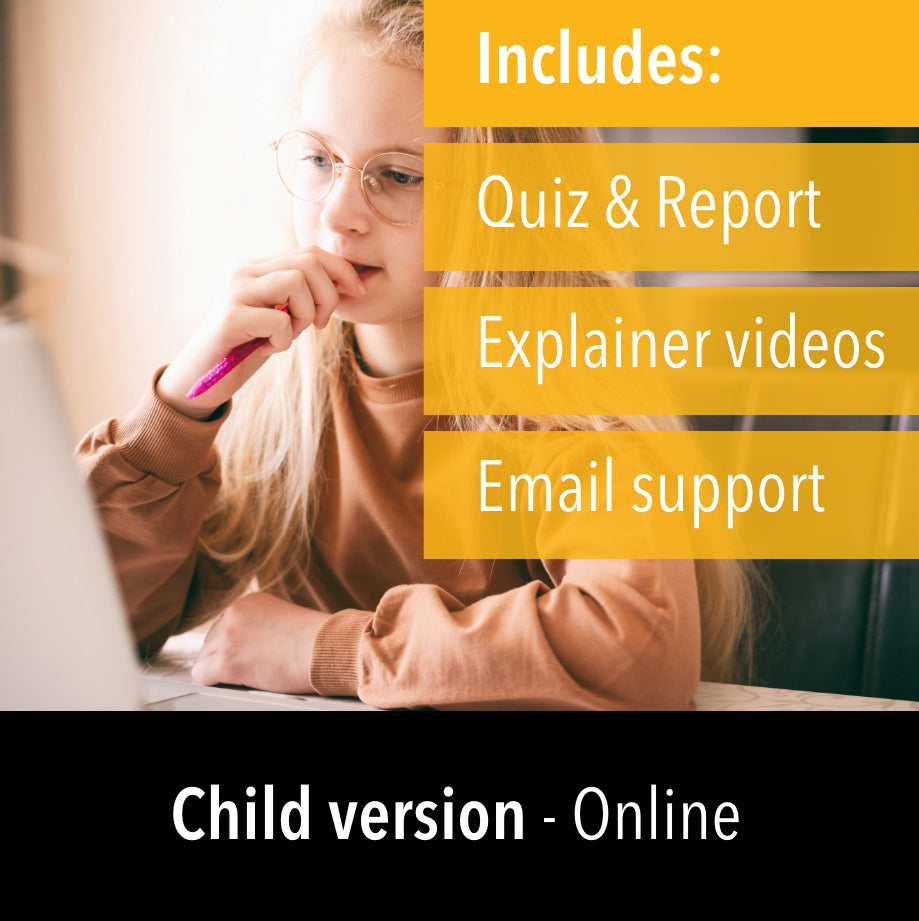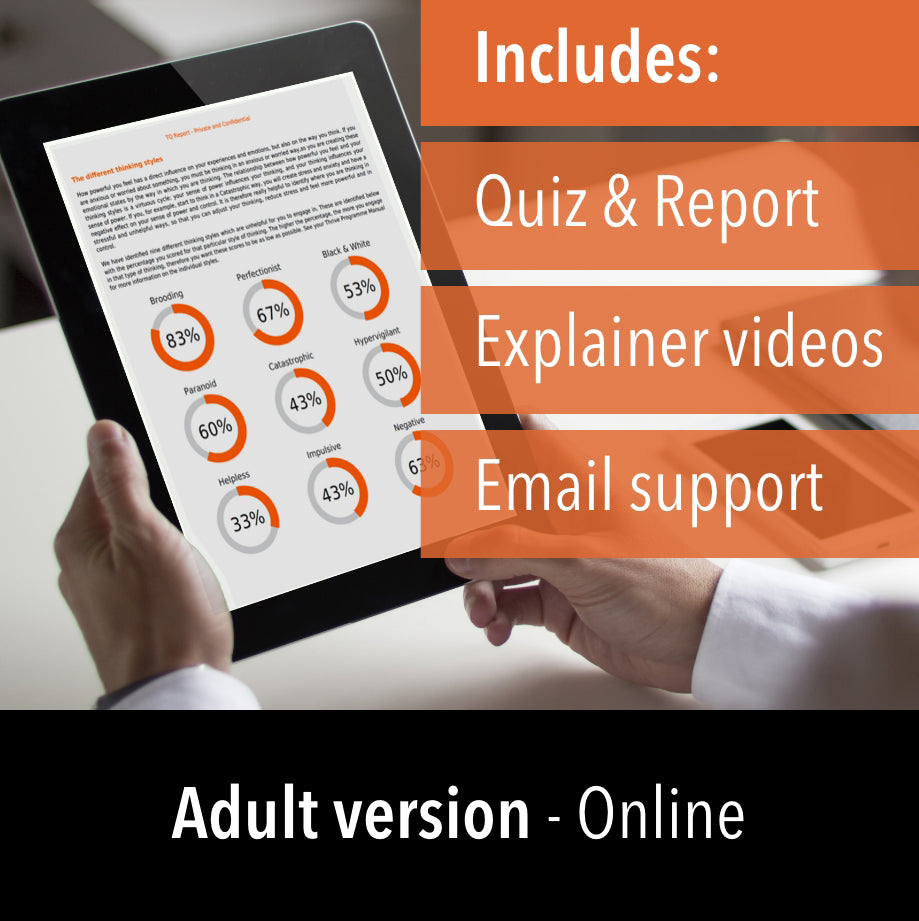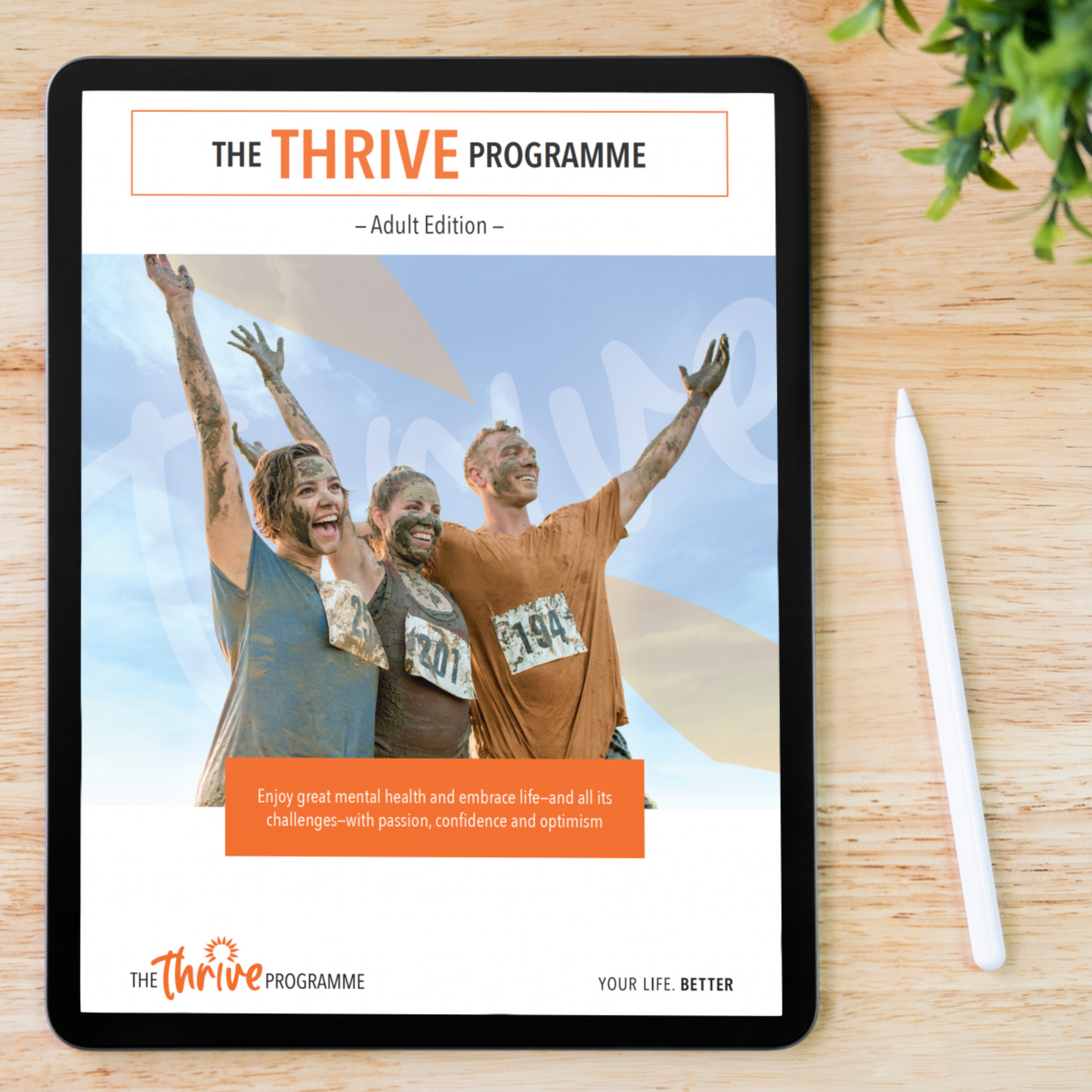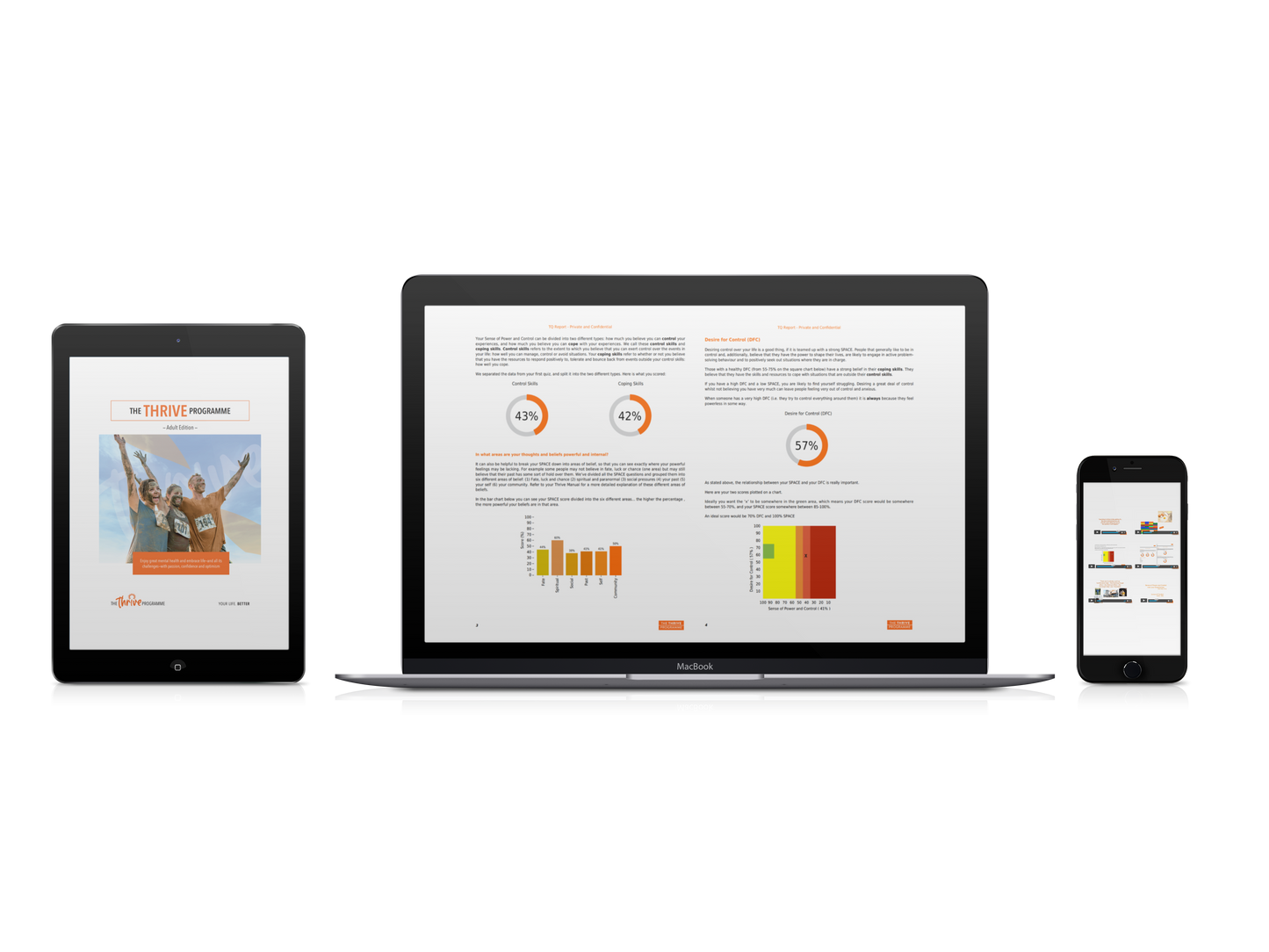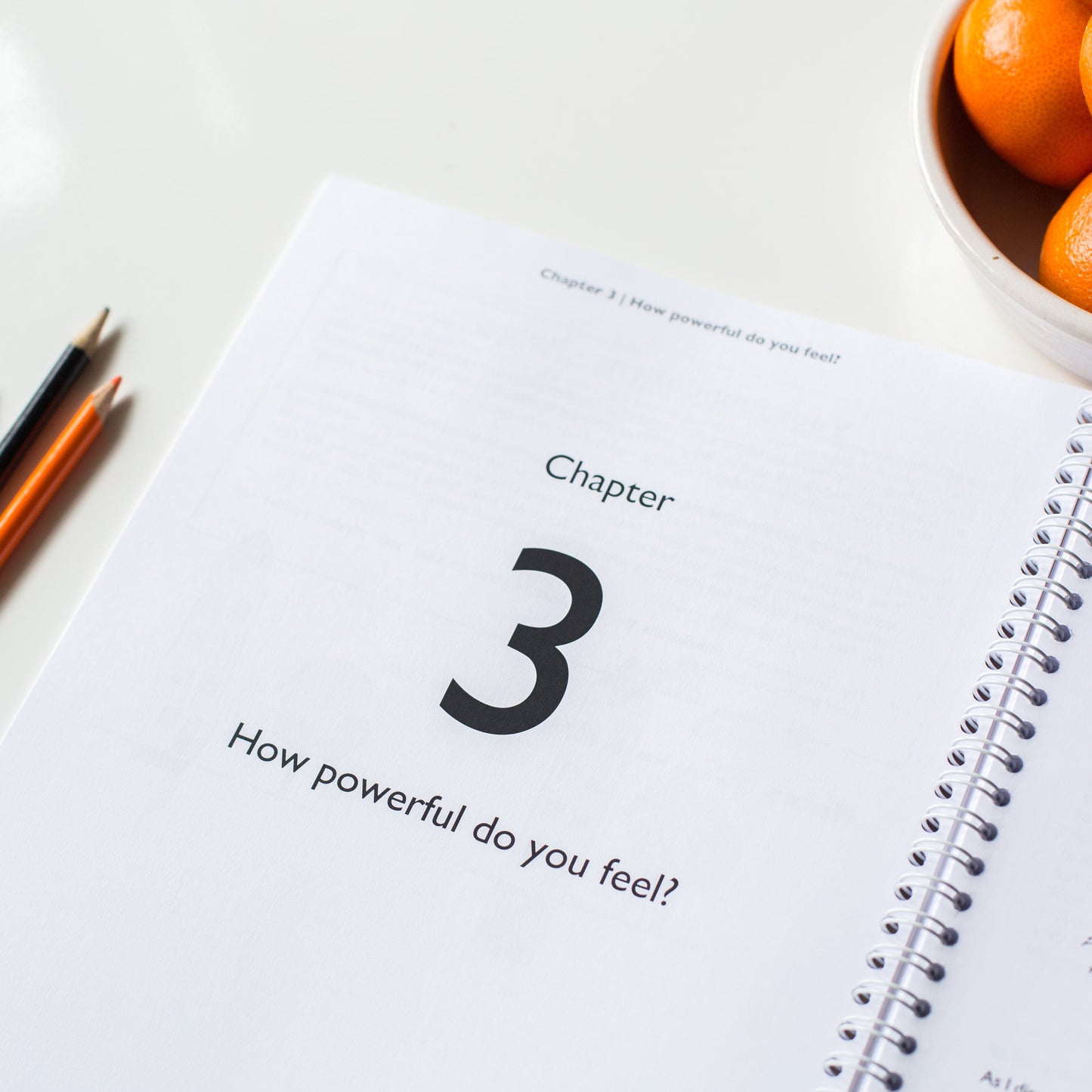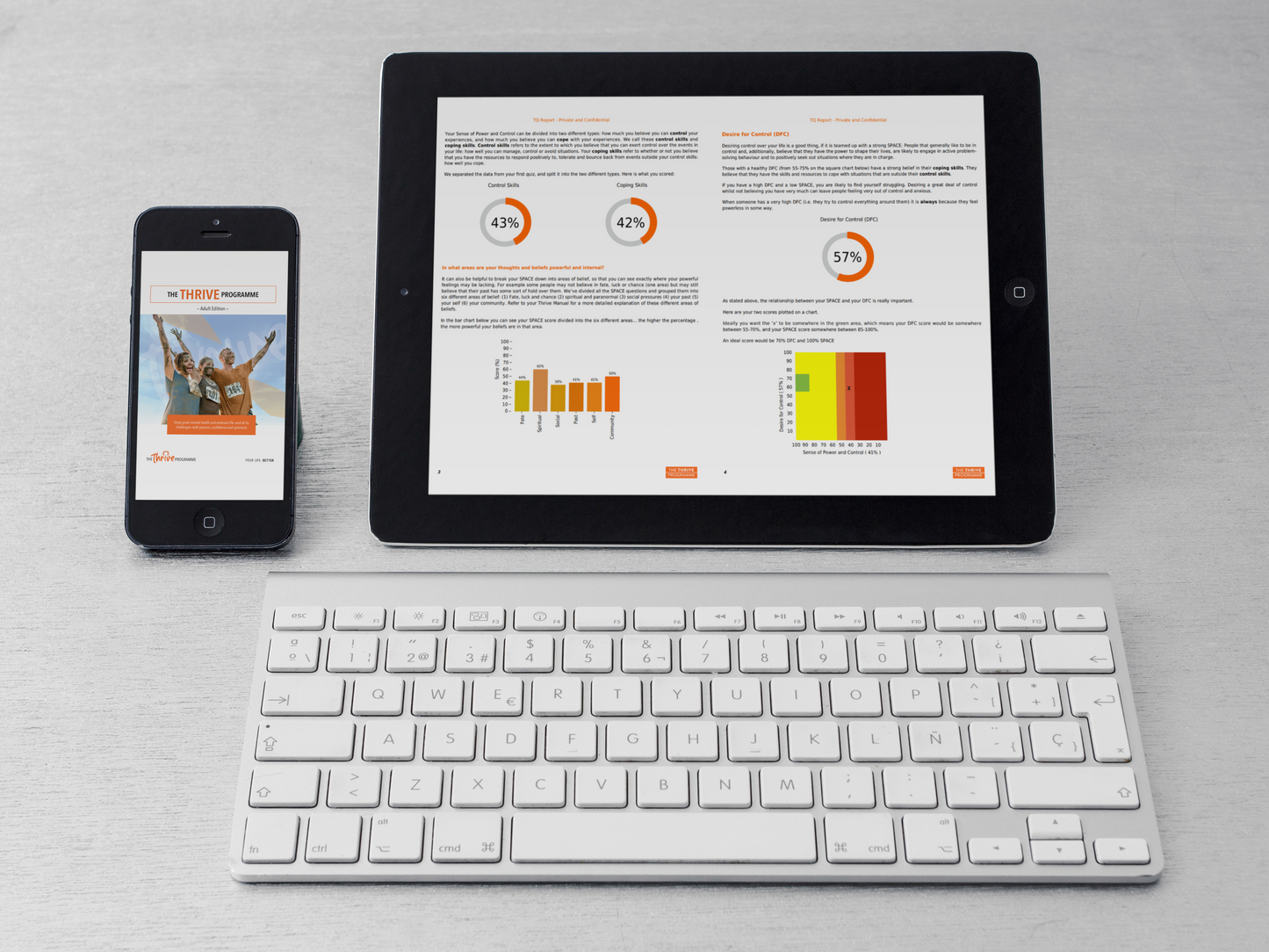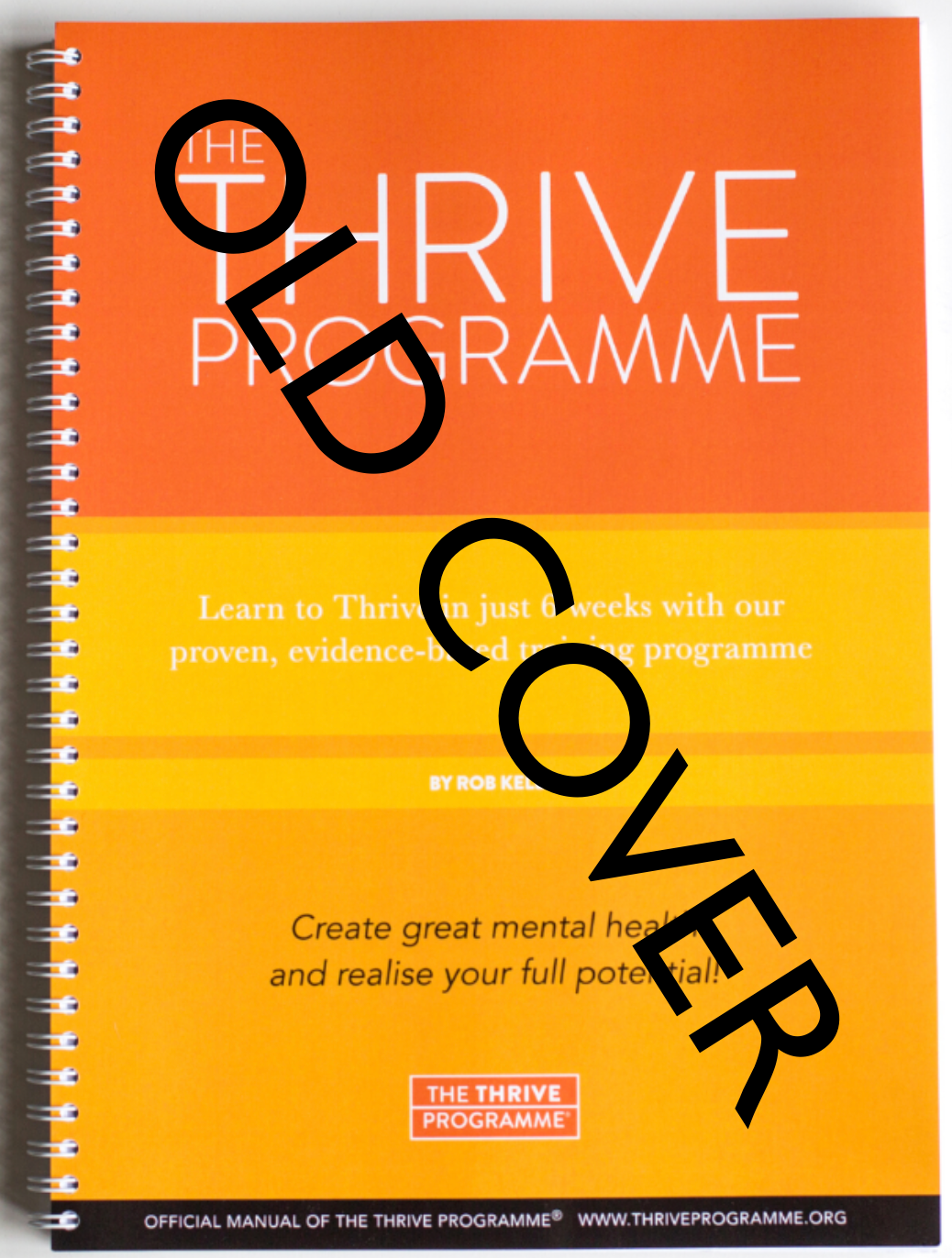Couldn't load pickup availability
Important: This programme is designed for both the child AND their parent/carer to complete together. The child will work through their manual alongside the adult who will work through their own adult manual (both manuals are included in the child programme). It is imperative that the adult read, learn and understand all the concepts within the programme to assist their child throughout.
What does this version include?
- The Thrive Programme Manual for Teenagers in digital form
- The Thrive Programme Manual for Adults in digital form (both delivered to the purchasers email address within minutes)
- Online 17-page TQ Assessment to track your progress
- 13 Support Videos to watch alongside reading the manual
- Weekly emails to help motivate your journey, full of top tips
Support Videos included with this version:
*The support videos are for both the child and the parent to watch and learn together.
- About The Thrive Programme – This introductory video explains how the Thrive Programme process works, how to use the videos to best effect, and how the programme itself started, with some real-life examples of our most inspiring former clients. It outlines how other mental health treatments are structured, their similarities and their shortcomings, and explains how The Thrive Programme fits (or perhaps doesn’t!) into the current mental health treatment landscape.
- Beliefs & Cognitions – This video examines our beliefs and the way we see things in more detail. It looks at the huge impact our own individual filters and ‘lenses’ are in shaping how we view our reality, shows how exactly we create these lenses, and discusses related concepts like ‘cognitive bias’ and ‘inattention bias’. It explains how these different filters affect the way we view, process and react to different experiences and events. The video also examines the connection between thoughts and beliefs, particularly in relation to phobias and fears.
- Introduction to SPACE - This video introduces us to the concept of SPACE, our Sense of Power And Control over Events. It looks at how exactly we learn behaviours and thinking styles, dispelling the myth that we are born and/or stuck with certain unhelpful thinking patterns. It looks in more detail at thoughts and beliefs, and outlines experiments demonstrating how quickly just a few words can subconsciously affect our behaviours and attitudes. This video also explores the concept of ‘psychological foundations’.
- Introduction to SPACE - This video introduces us to the concept of SPACE, our Sense of Power And Control over Events. It looks at how exactly we learn behaviours and thinking styles, dispelling the myth that we are born and/or stuck with certain unhelpful thinking patterns. It looks in more detail at thoughts and beliefs, and outlines experiments demonstrating how quickly just a few words can subconsciously affect our behaviours and attitudes. This video also explores the concept of ‘psychological foundations’.
- More about SPACE - This video looks in more detail at psychological foundations and the way that we process events. It explores their relationships to SPACE, to our Desire for Control and to our coping skills. It looks at different kinds of external influences, from religion and spirituality to fate, luck, horoscopes, the supernatural/paranormal, as well as social pressures and conformity. It explores how these can affect not just our SPACE, but our emotions, reactions, attitudes, and behaviours, and fuel powerlessness in areas such as obesity, addiction and smoking, health problems, emotional responses, work and relationships.
- Depth of Belief - This video focuses on how exactly we challenge our SPACE, think more internally, and change our unhelpful or limiting beliefs. It highlights not just the belief change itself, but the process and depth of belief changes. It looks at how to create stable belief changes that build a new perspective and SPACE, the importance of looking for new evidence, and examines the ‘belief wall’ tool in order to embed belief changes.
- Beliefs & why we react so quickly - This short video examines the common assumption that emotions just ‘happen’ to us quickly, in the moment, without any lead-up thinking. It looks again in more detail at the way we view and process events and experiences, and explains how our underlying beliefs and SPACE directly and predictably contribute to exactly what emotions and reactions we create in the moment, even if at the time they might SEEM spontaneous and out of our control.
- Self-Esteem - This video focuses on a core part of our psychological foundations: self-esteem. It outlines what builds high, stable self-esteem, the role of our inner voice, and dispels the myth that our self-esteem is based on external factors like work, relationships, income, the past, and social life. It introduces the additional concepts of internal and external self-esteem, of a 2-week self-esteem ‘battery’, and outlines our marble analogy for positive and negative thinking and self-regard.
- Social Confidence - This video explains what social confidence is, how it is not real but we actually create it, and outlines its psychological opposite (social anxiety). It links social confidence back to self-esteem and to SPACE, shows how it also relates to our levels of secondary control, and explains the differences between anticipatory and real-time anxiety. It explains how social anxiety links to a number of specific unhelpful thinking styles, how the behaviour is often learned and copied from a significant other, and the importance of building perspective and learning to tolerate uncomfortable emotions in order to challenge socially anxious thoughts. It also introduces key concepts including ‘diffusion of responsibility’ and ‘obedience to authority’.
- Social Confidence – Overcoming fears & phobias - This video explores how we challenge social anxiety, with particular relation to overcoming phobias, fears and performance-related anxieties. It explores the importance of managing your thinking well on a daily basis, and outlines an approach to 'preparing for, managing during, and processing after' a challenging situation or event. It examines the key role of your inner voice in building confidence and reducing anticipatory anxiety, and outlines in detail the process for doing this and managing your thinking well around difficult situations.
- Unhelpful Thinking Styles - This video explores a number of unhelpful thinking styles covered in the (identically named) chapter; Negative, Brooding/Obsessive, Paranoid, Black and White, Catastrophic, Impulsive, Perfectionist, Hypervigilant, and Learned Helplessness. It explains how each thinking style presents itself and why somebody would feel they need to use each one, and links them all back to our psychological foundations and in particular to our SPACE.
- Mind Your Language - This video explains the importance of language awareness and how the language you use reflects your thoughts, emotions and beliefs. It also outlines the significance of the language that is used, from active to passive, from helpful to unhelpful.
- The ABC’s of Thriving - This video is a guide for building and maintaining a thriving attitude and perspective even after finishing the programme. It outlines a simple ‘A, B, C’ process for managing your thinking and ensuring you are doing all the key basic Thrive work on a daily basis to keep yourself in a healthy and helpful headspace. It explains how and why to focus on your A (Attitude), B (Beliefs) and C’s (Control) every day, and gives an overview of how to implement each one on a daily basis to fit in easily with everyday life.
Why The Thrive Programme?
The Thrive Programme is evidence-based; founded on scientific research, 30+ years clinical experience and a thorough understanding of how the human mind works. There is no mumbo-jumbo, pseudo-science or psychobabble … just proven, predictable skills that will enable you to develop solid mental health for life.
If all the above sounds 'too good to be true,' please take a bit of time to watch some brilliant testimonial videos from people, just like you, who have worked through the programme and are now thriving!
We advise getting The Thrive Programme Journal to support your learning: an 8-week journal you fill in daily, with exercises and prompts to keep you on track as you progress the programme.
Share
